Resilience in Action: The Maldives and Mozambique Turn Risk into Readiness
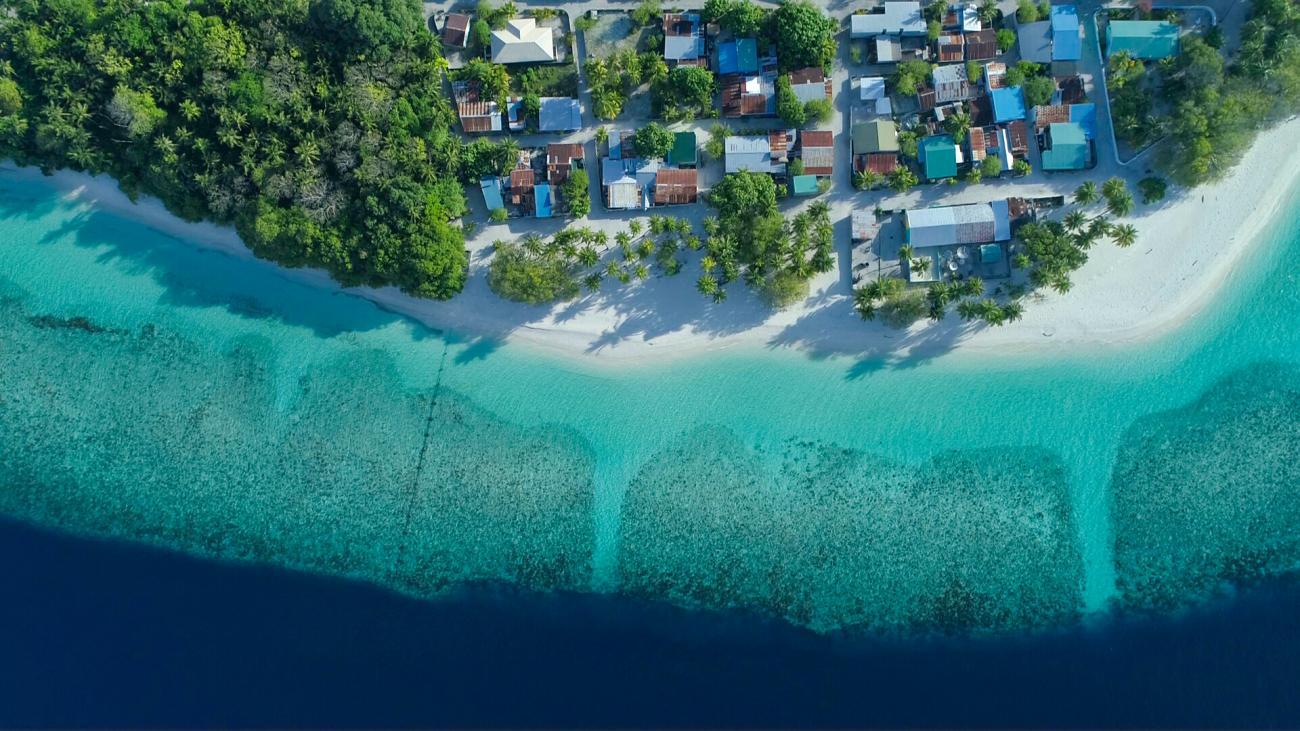
When a siren sounds in a coastal town or a text alert reaches an island community, it signals more than an impending storm: it shows that systems are working, and people are prepared.
Across the Maldives and Mozambique, two nations from different regions of our planet, such alerts mark a growing shift in how countries think about resilience. It is no longer just about rebuilding after the storm. It is about anticipating, preparing and protecting lives before disaster strikes.
On Disaster Risk Reduction Day, these two countries, different in geography but aligned in purpose, show how innovation, community leadership and UN-supported partnerships are helping turn risk management into everyday readiness.
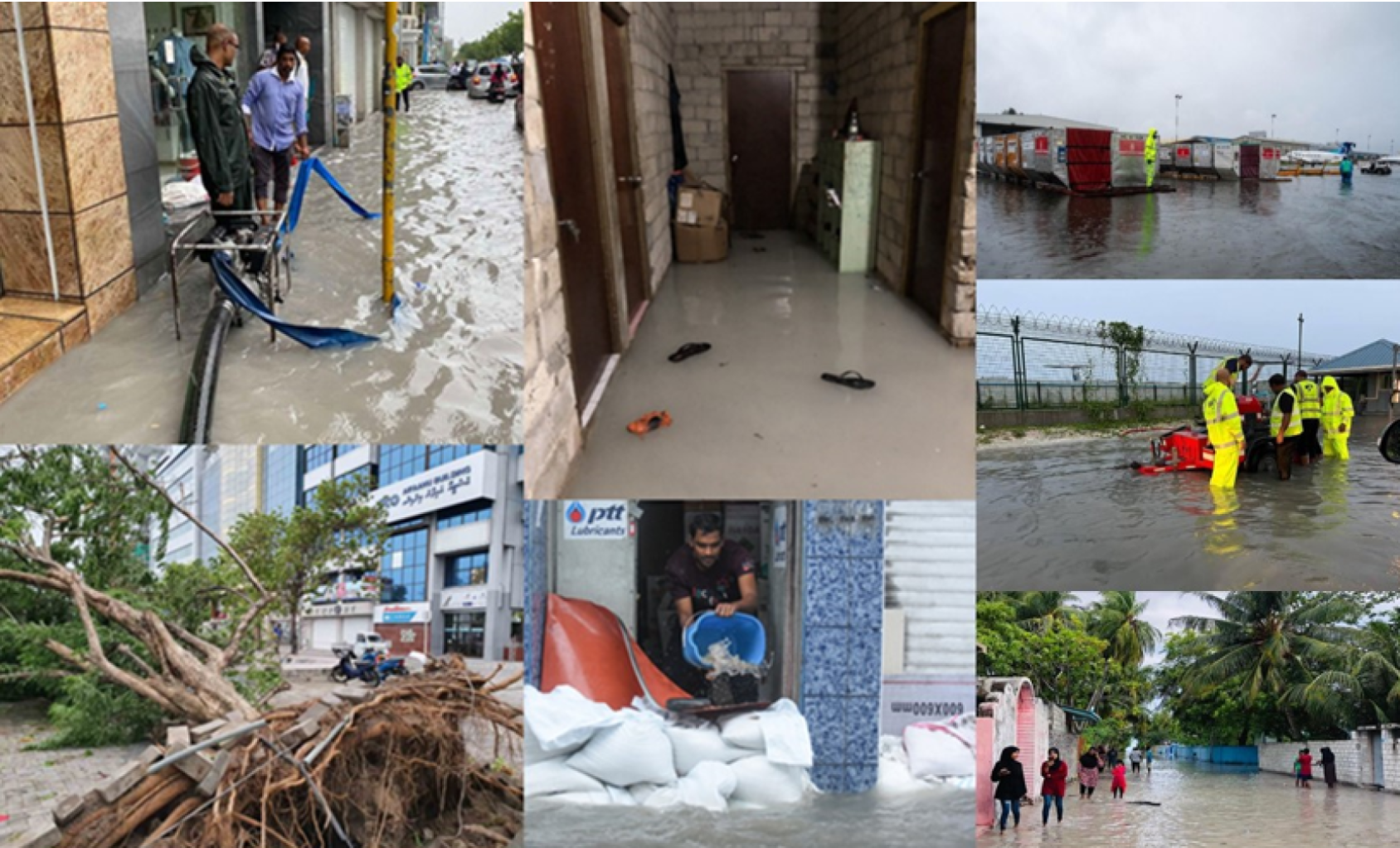
Small islands, big lessons
In the Maldives, where the sea serves as both a lifeline and a threat, disaster risk reduction has taken on urgent significance. The country became the first in Asia and the Pacific to endorse an “Early Warnings for All” (EW4All) roadmap, a framework that ensures every person, on every atoll, can be reached with timely and actionable alerts. The Resident Coordinator played a central role in driving this effort, engaging closely with the Government of the Maldives to ensure alignment with national priorities.
Thereafter, once priorities had been identified and aligned with the government, the RC brought together the expertise of the UN Development Programme (UNDP), UN Economic and Social Commission for Asia and the Pacific (UNESCAP), UN Environment Programme (UNEP), the UN Office for Disaster Risk Reduction (UNDRR), and the World Meteorological Organization (WMO) and the Group on Earth Observations (GEO). Coordinated by the RC, these agencies aligned their expertise to deliver coherent policy and technical support, ensuring the initiative made a tangible difference for people in the Maldives.
UN support also ensured that early warnings were more than generic alarm systems. The UN helped pilot a checklist to make sure warnings work for everyone: persons with disabilities, migrants, women and girls. This inclusive approach reshaped national risk communication. More than 250 representatives from every atoll fed into the nationwide “Hurushiya” campaign, led by the National Disaster Management Authority and the Maldivian Red Crescent. The campaign issues alerts and builds a culture of preparedness. Parallel efforts are unfolding at the local level, where Male’ City, home to nearly 40 per cent of the population, is preparing its first island disaster management plan, with support from the UN Country Team (UNCT) in the Maldives.
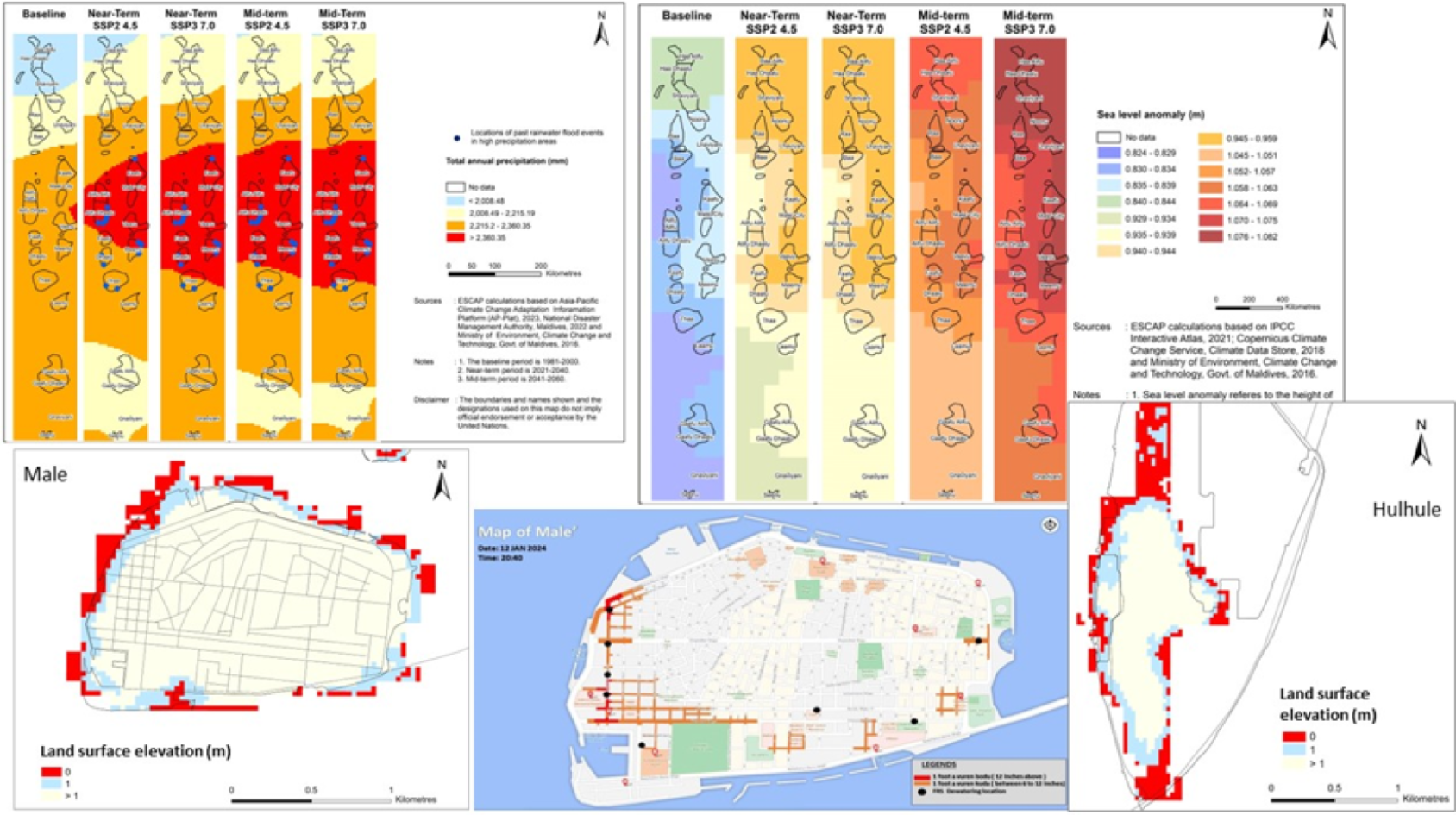
And behind the scenes, data is becoming a silent ally. A new disaster loss platform allows island councils to file real-time reports, cutting response times from days to hours. This “Risk and Resilience Portal” now puts high-resolution climate projections and land use maps into the hands of decision-makers. These changes mean fishermen know when to stay ashore, families know when to move to higher ground, and councils can mobilise relief without waiting for days of paperwork.
However, these efforts also depend on keeping national commitment strong and partners moving in the same direction. By bringing together government institutions, development partners, and regional actors, the RC helped sustain momentum and channel resources toward the national EW4All Action Plan. This unified approach keeps the Maldives on course to achieve full early warning coverage by 2027, setting a powerful example for other island nations in the region and beyond.
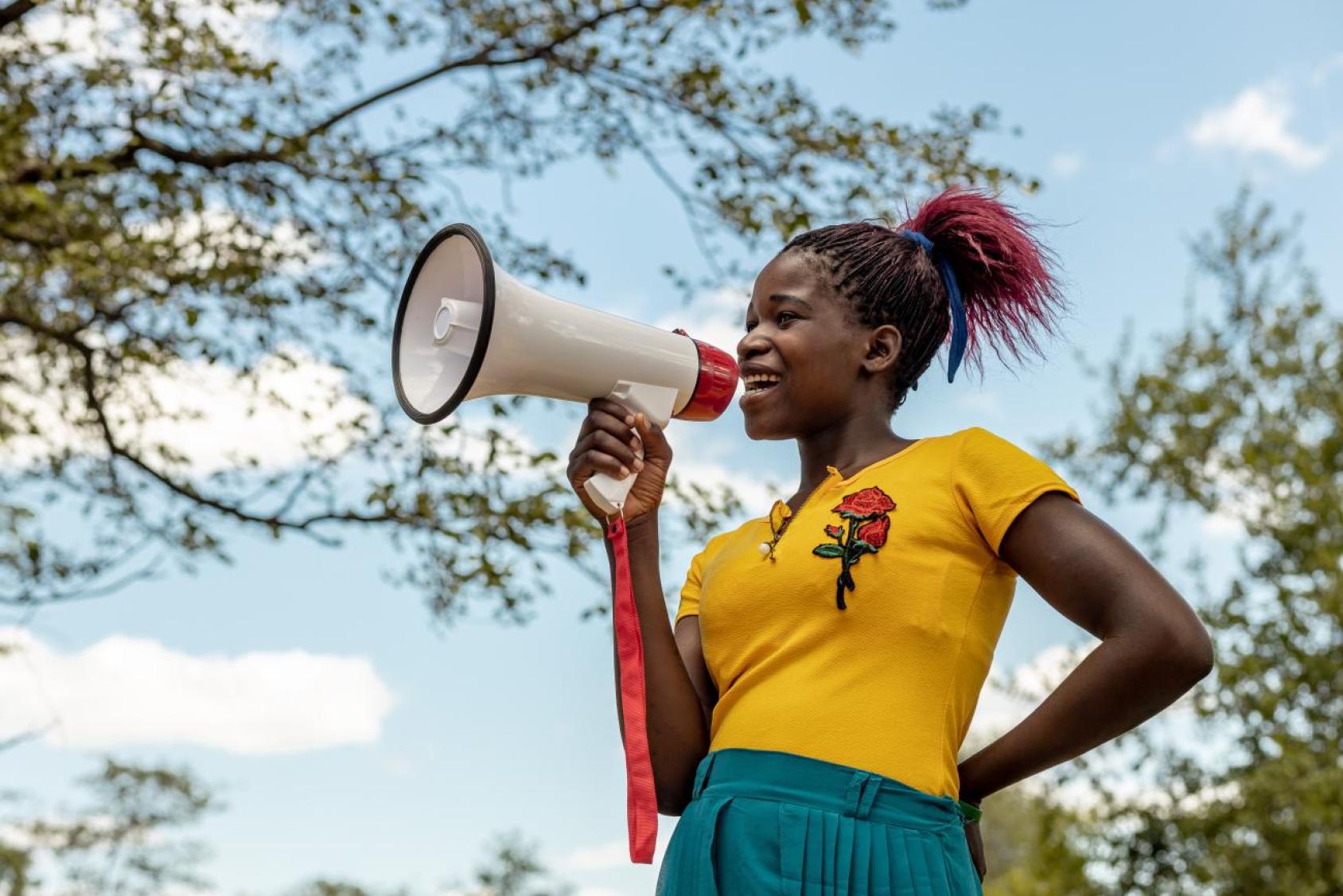
From warning to action
Mozambique’s exposure to climate extremes is deepening, with 12 major droughts and cyclones since 2020 underscoring the urgency of strengthening national resilience systems. In response, the Government, supported by the UN in Mozambique team, has advanced its national disaster preparedness through the establishment of the Sistema Integrado de Aviso Prévio (SIAP), a comprehensive Integrated Early Warning System. This effort, aligned with the global EW4All initiative, enhances coordination across government institutions and communities while linking scientific forecasting with local preparedness. The UN has provided extensive technical support, from installing meteorological infrastructure and digital monitoring platforms to developing climate risk profiles that guide national planning and inform Mozambique’s climate commitments.
A cornerstone of this partnership has been the promotion of anticipatory action, which involves taking action before disaster strikes. With UN support, Mozambique has implemented protocols that trigger early responses when risk thresholds are reached. This approach enabled timely evacuations, pre-positioning of relief supplies, and protection of livelihoods during major storms like Cyclone Freddy. UN agencies have helped design inclusive communication systems, from SMS alerts to community radios and megaphones, ensuring life-saving information reaches even the most remote populations. These actions have proven transformative, saving lives and strengthening public confidence in local disaster management systems.
The UN has also prioritised empowering communities and strengthening local leadership, helping establish and train Community-Based Disaster Risk Management Committees across high-risk provinces. Initiatives led by the UN Children’s Fund (UNICEF), the UN Population Fund (UNFPA), UNDP, UN Women and the World Food Programme (WFP) have focused on preparedness that works for everyone, including through gender-responsive preparedness, forecast-based financing, and early cash transfers, ensuring that women, youth, and vulnerable groups receive the support they need to participate in risk reduction actively.
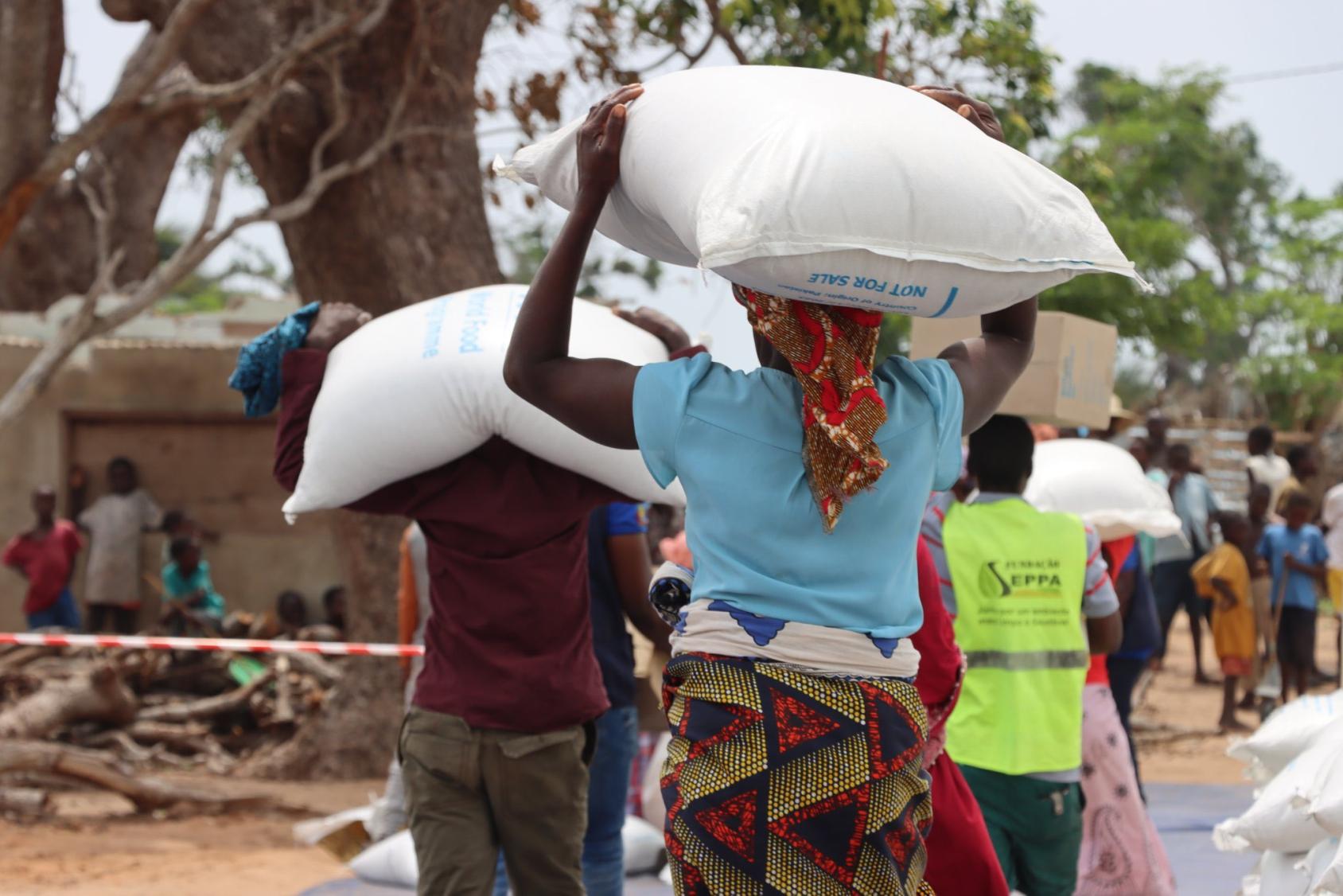
During Cyclone Jude in 2025, UN anticipatory financing mechanisms enabled a rapid humanitarian response, protecting nearly 300,000 people and demonstrating how early action results in lives saved and faster recovery.
Data also has a vital role in Mozambique’s resilience efforts, turning information into foresight and action. Through programmes like the Systematic Observations Financing Facility (SOFF), Mozambique is expanding its weather observation infrastructure. These investments, supported by UNDP, UNDRR, UNEP, WFP and WMO, are closing critical data gaps and enabling more localized forecasting.
By integrating early warning systems into national climate policies and its updated Nationally Determined Contribution (NDC 3.0), Mozambique, with UN support, is ensuring that early warning and early action remain central to the country’s development strategy. As disasters become more frequent and severe, the question is not whether we can predict them, but whether we can act on those predictions quickly, reasonably, and inclusively.
The experiences of the Maldives and Mozambique demonstrate that change is possible. They show that resilience is not an abstract goal but a lived reality that saves lives and livelihoods. On this Disaster Risk Reduction Day, we are reminded that while hazards may be inevitable, disasters are not. The difference lies in how we work together to prepare and build resilience. As the UN Secretary-General said in his message for the day, “resilience must be embedded into the foundations of development.”
Read more about the UN's work in the Maldives and Mozambique.













